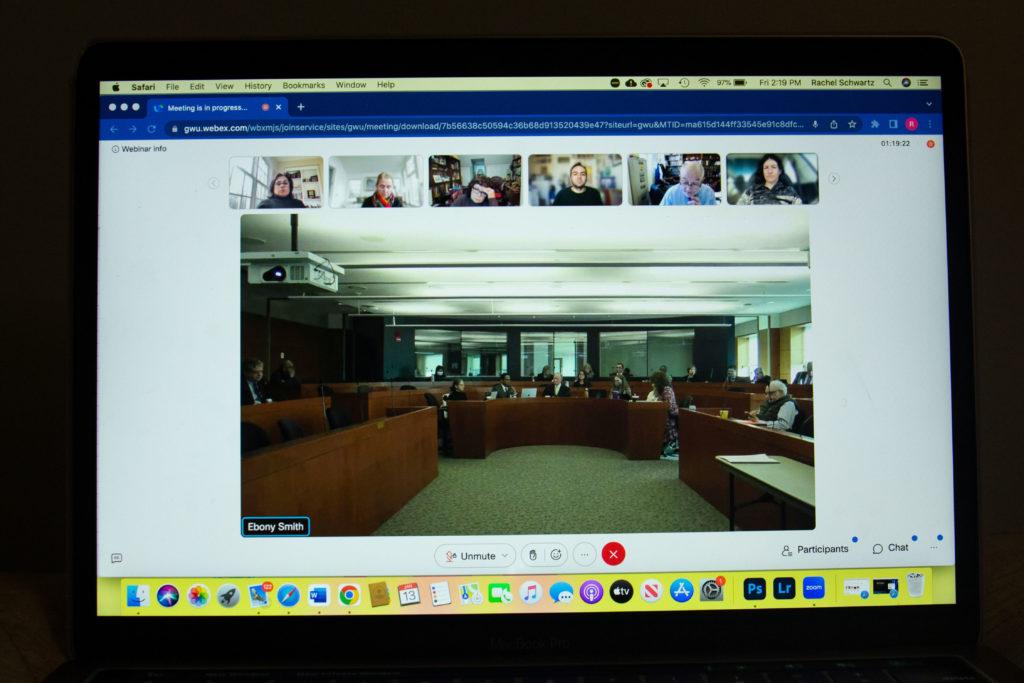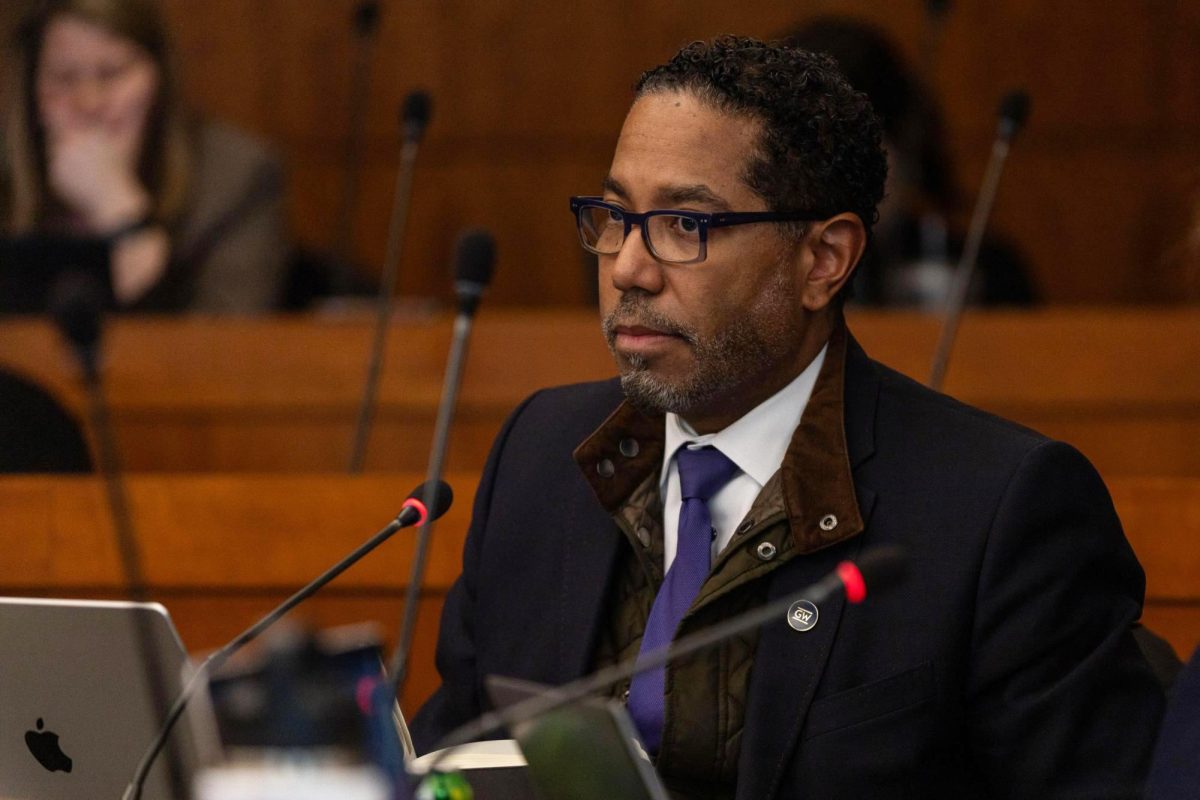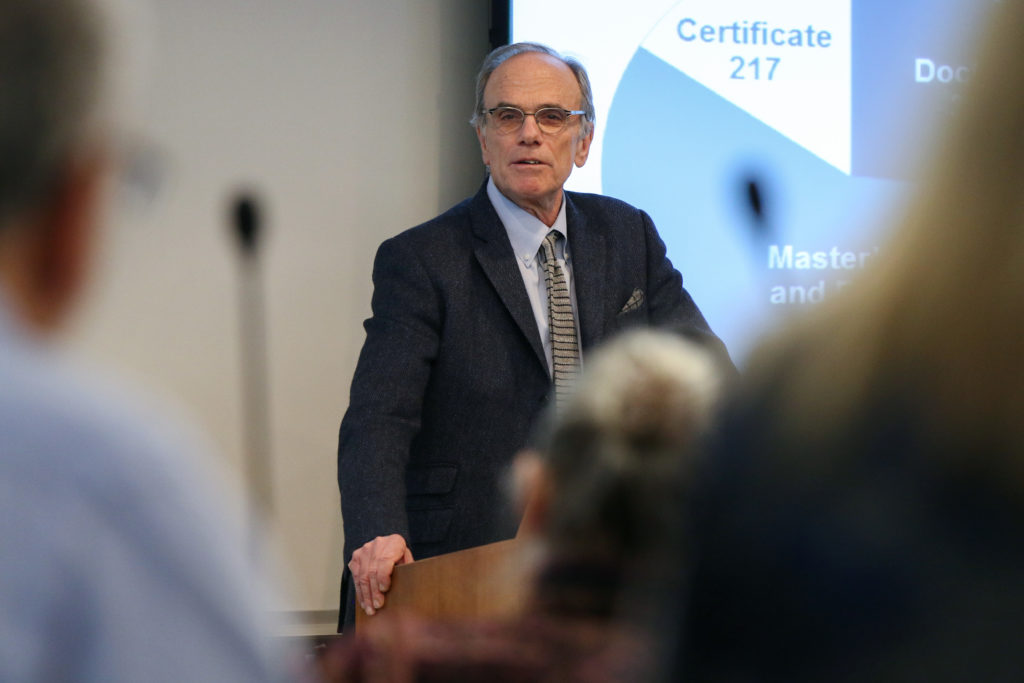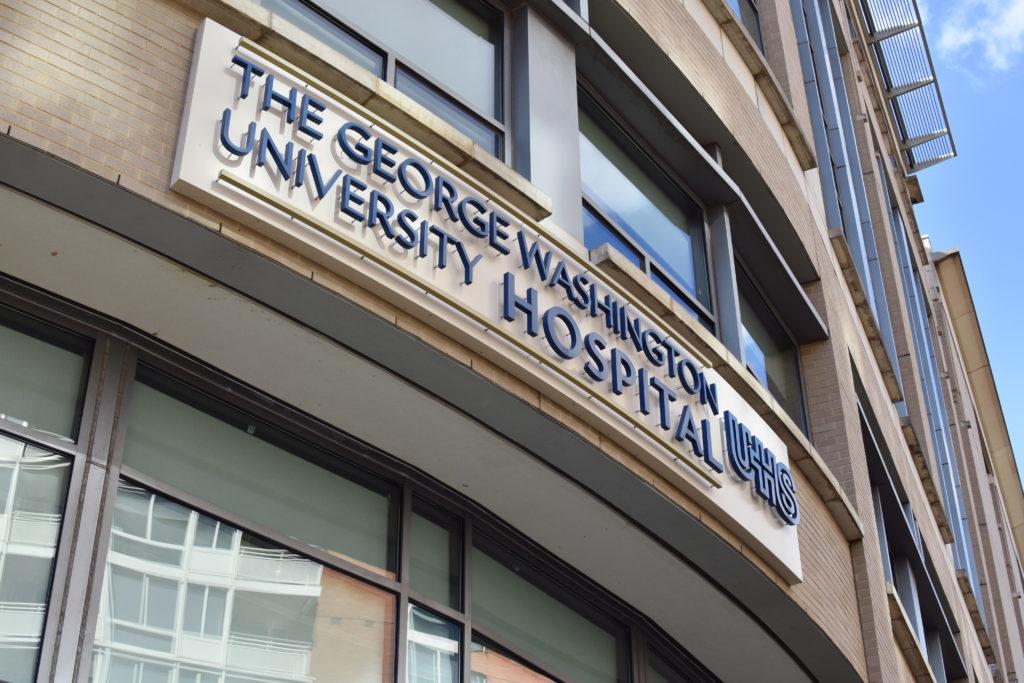Officials said Friday that the Medical Faculty Associates will lose up to another $65 million this fiscal year, losses that will derail their plans for the ailing medical practice to break even by the end of June.
Interim University President Mark Wrighton walked back GW’s earlier projection for the MFA to recover from $200 million in debt and break even by the end of fiscal year 2023 during a Faculty Senate meeting Friday, pushing the target back until the following fiscal year. The MFA’s estimated losses this fiscal year directly counteract plans that MFA CFO Barbara Bass outlined in a report to the senate in October to increase the MFA’s revenue by more than $60 million and decrease its expenses by $2 million to break even before the year is over.
“By the end of FY 2024, we will be at breakeven,” Wrighton said at the meeting Friday. “However, I need to share, and the Board is understanding of this, that there is no guarantee that financial success will be achieved.”
Wrighton said the Board of Trustees loaned the MFA $15 million in December and approved another $45 million loan to the MFA last week, which pile on to the staggering $140 million that GW loaned to the MFA in 2021.
CFO Bruno Fernandes said the MFA’s losses this fiscal year will range between $55 million to $65 million. He said most of the losses were “front-loaded” at the beginning of FY 2023.
Officials restructured the MFA in August to improve its financial standing through yearly payments from Universal Health Services to GW, “trademark royalties” and a “fair market rent repayment” on GW property to help the MFA break even after officials sold their minority stake in the GW Hospital. MFA CEO Barbara Bass said at the October Faculty Senate meeting that the sale of GW’s 20 percent minority stake in the GW Hospital will create a “modern funds flow arrangement” and help redirect clinical revenue to the MFA, which partially staffs the hospital.
Wrighton said as the GW Hospital continues to grow under the new arrangement with Universal Health Services, the MFA will also “thrive” with the new partnership with the hospital. He said the new arrangement will better position the MFA for success in clinical programs.
“This is why it’s important to know that the George Washington University Hospital, our principal hospital relationship, needs to thrive also,” Wrighton said. “And as they thrive, we will thrive, and as we expand the scope and quality of what we do, the hospital will do better also.”
Faculty senators passed a resolution at Friday’s meeting proposing a plan for officials to issue quarterly updates to the Faculty Senate Executive Committee and the Faculty Senate Fiscal Planning and Budgeting Committee on issues including the MFA’s cash flow, GW’s loans to the MFA and outside creditors’ loans to the MFA that GW would be expected to fulfill if the MFA is unable to repay.
Joe Cordes, a faculty senator and the co-chair of the senate’s Fiscal Planning and Budgeting Committee, said the regular updates would hand the senate information they need to create a financial “plan B” in case the MFA doesn’t break even by FY 2024. He said the resolution is “step number one” to better understand the financial standing of the MFA and will help the committee determine if “midcourse corrections” to the medical institution are necessary going forward.
“The financial health of this particular entity has implications for the rest of the University, as President Wrighton has noted,” Cordes said at the meeting. “So I think the two things are very much connected on this, and our hope is obviously that the updates will show a favorable trajectory.”
The MFA’s net profits have fallen by $91.1 million since 2019, according to a report from Fernandes on the financial standing of the MFA in October.
Fernandes said at the senate meeting in October that the University granted the MFA a $140 million loan in 2021 and expect $120 million to be repaid with interest in the next 15 years, while the other $20 million can be used for operating costs.
Shaista Khilji, a professor of human and organizational learning and international affairs and the former head of the shared governance task force, shared a report recommending ways officials and faculty can practice shared governance through town halls and including faculty in strategic planning.
The recommendations come after the Board of Trustees erected a set of shared governance principles in June following a yearlong process to improve collaboration between faculty and officials. The principles state that faculty should have a meaningful role in “key decision making” at GW, should have primary authority over “specific areas” of academic policy and that the Board will “periodically” review the president’s commitment to shared governance.
Khilji said trustees met with a representative from the Faculty Senate Executive Committee in the fall, and meetings between the two bodies should continue as officials discuss “University-wide issues.” She said after officials hosted a series of town halls with faculty last year to hear feedback on shared governance reforms and the presidential search, the Board should recommit itself to “getting to know” faculty with more town halls going forward.
Khiliji said the Board should host an annual forum where trustees deliver updates to faculty, which should be followed by a question and answer period.
“Opening communication avenues like the town halls are important for the Board to meet ordinary non-Faculty Senate Executive Committee, nonsenator faculty,” she said. “I think we should continue with the town halls where the administrators, the faculty and the Board can come together to discuss various issues and hear each other.”
Khilji said officials should include faculty in any strategic or academic planning on both a University and school level. Officials have operated without a University-wide strategic plan for nearly three years after the pandemic rendered former University President Thomas Leblanc’s five-year plan obsolete.
Faculty said creating a strategic plan has been a low priority for them without a permanent University president since LeBlanc. But with the naming of Ellen Granberg as GW’s next University president Wednesday, experts in higher education said the new president could usher in a new strategic vision for the long-term future.
Khilji said faculty could join senate committees to get involved in University planning but recommended the senate create a special committee on strategic planning to ensure faculty voices are involved in officials’ decisions.
“This would allow the faculty to work with the administration and the Board at a time that is appropriate to give clarity on the timing, creation, implementation and identification of the strategic plan,” Khilji said. “I believe starting this process earlier is critical to ensuring our voices are heard.”











